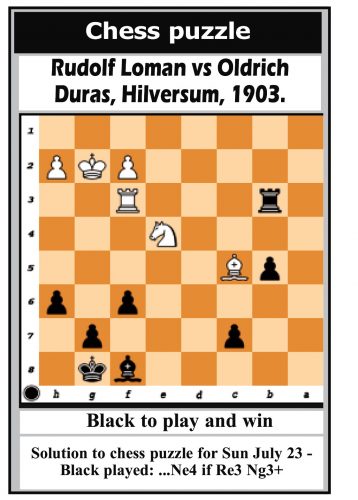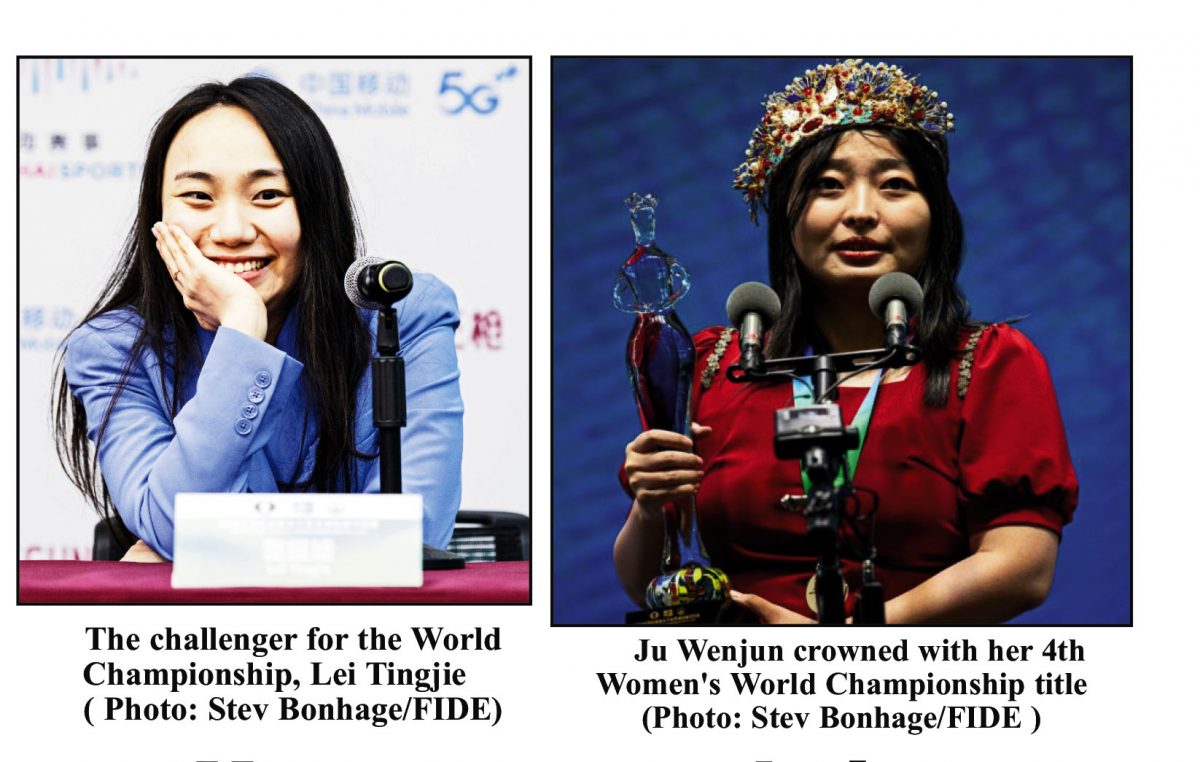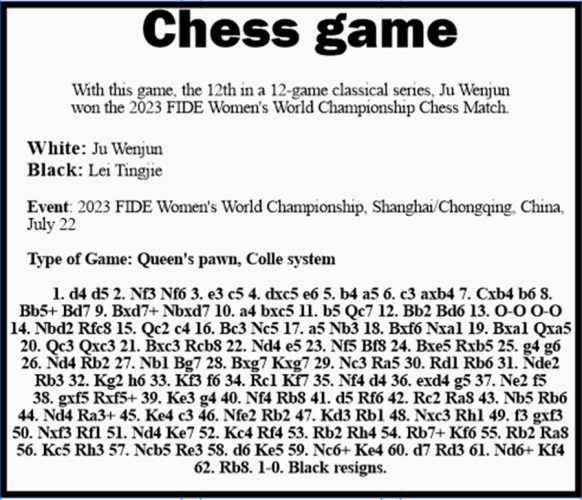 The 2023 seven-round National Women’s Chess Qualifiers Tournament for selection to contest the National Championship has begun at the School of the Nations, Georgetown with four of the stars of last year’s Chess Olympiad in India, Sasha Shariff, Anaya Lall, Nellisha Johnson and Jessica Callender among those in contention.
The 2023 seven-round National Women’s Chess Qualifiers Tournament for selection to contest the National Championship has begun at the School of the Nations, Georgetown with four of the stars of last year’s Chess Olympiad in India, Sasha Shariff, Anaya Lall, Nellisha Johnson and Jessica Callender among those in contention.
The top nine finishers will advance to the National Championships. Pooja Lam, a schoolgirl from the West Coast Demerara, who is the 2022 Women’s National Chess Champion, is not required to participate, since she has already qualified. She will hold the No. 10 spot in the Qualifiers.
 It is invigorating to notice that chess is once again a headliner within the local sporting community. In the past two months, we have experienced a flurry of activities from one championship to another. The biennial Chess Olympiad is Guyana’s favourite international team tournament. Like so many other nations, Guyana is thrilled when the Olympiad year comes around. Traditionally, the Olympiad lowers the scale for which chess titles are awarded. For example, it is easier to obtain an international master or grandmaster title at the Olympiad than it is for other international events. Last year, 188 teams competed for prizes at the Olympiad in Chennai, India. The Women had 163 teams facing each other.
It is invigorating to notice that chess is once again a headliner within the local sporting community. In the past two months, we have experienced a flurry of activities from one championship to another. The biennial Chess Olympiad is Guyana’s favourite international team tournament. Like so many other nations, Guyana is thrilled when the Olympiad year comes around. Traditionally, the Olympiad lowers the scale for which chess titles are awarded. For example, it is easier to obtain an international master or grandmaster title at the Olympiad than it is for other international events. Last year, 188 teams competed for prizes at the Olympiad in Chennai, India. The Women had 163 teams facing each other.
At the annual National Chess Championships, the men and women compete separately. The top finishers in both categories are named national men’s champion and national women’s champion. In the Grand Prix tournaments, however, women face off against men. If the woman loses she loses a vital point and could be psychologically affected. If the Grand Prix tournaments are the pre-qualification for Olympiad selection, then women should play separately from men. This is what happens at the Olympiad; tournaments are not intertwined. So why are we contesting the Grand Prix together? A separate tournament should be organised to give women much needed practice for international competition. I am reminded of the peculiar case of Hou Yifan, 29, a world champion and China’s most highly ranked woman player, who walked away from chess. Hou felt that FIDE should not determine the Women’s World Champion with a knockout tournament, where with one error a player could be dismissed. Rather, she felt it should be determined by a match between two players, the same as how it is determined with the men. Incidentally, China’s Ju Wenjun won the Women’s World Championship Chess Match two weeks ago. She defeated her compatriot Lei Tingjie.









